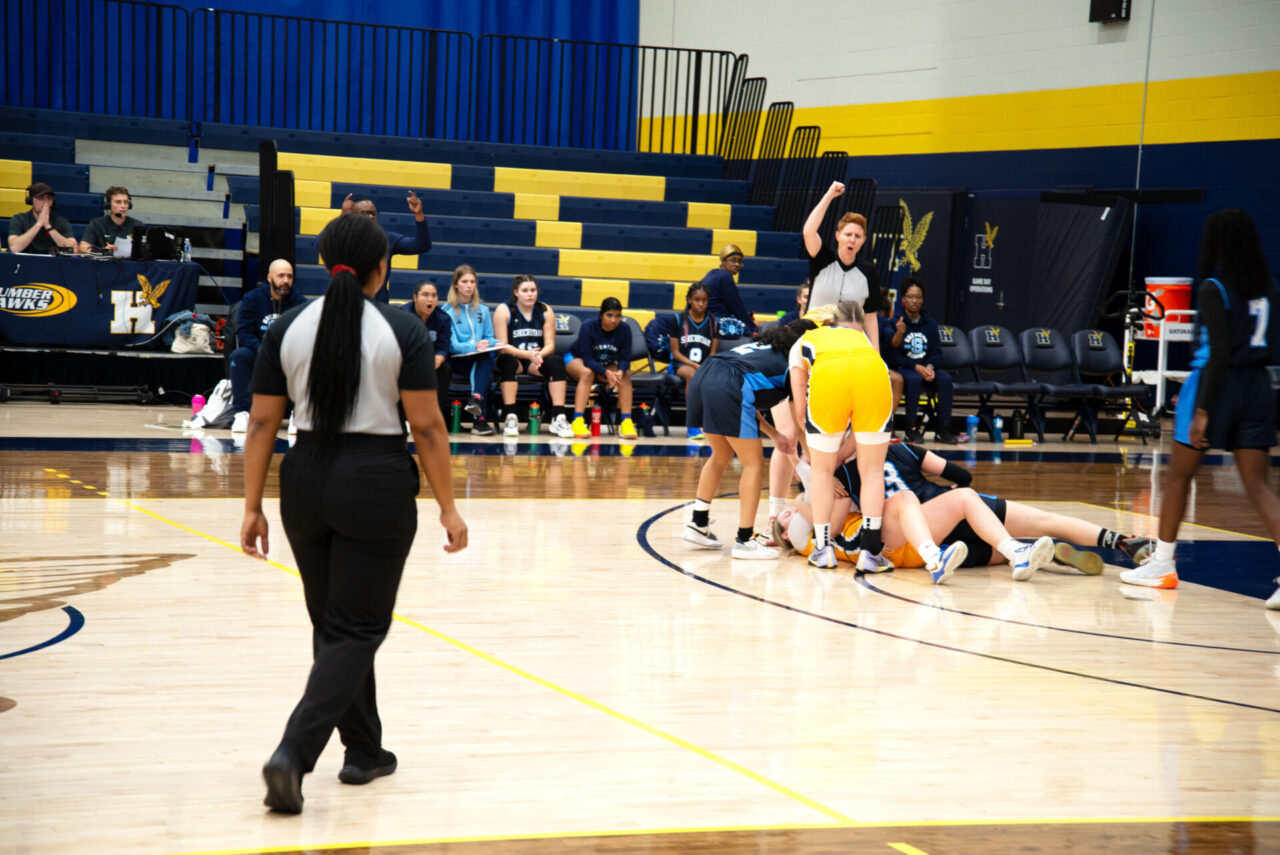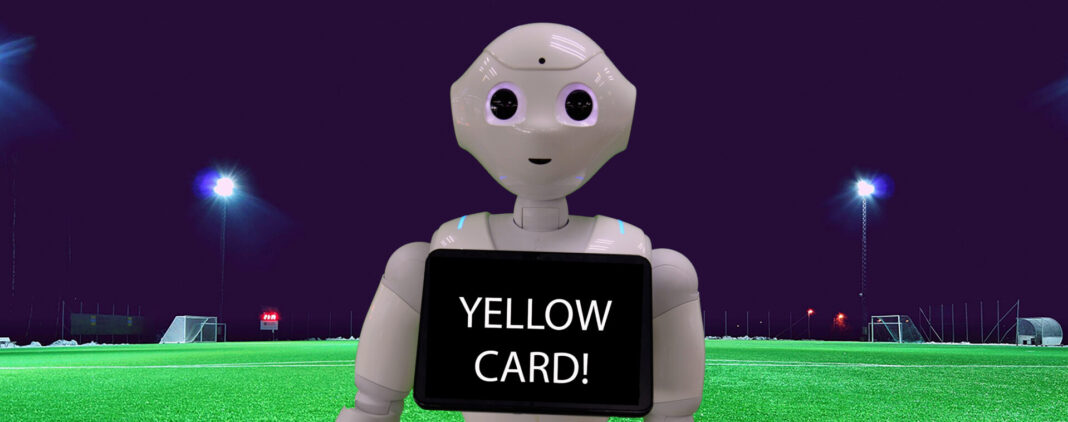By Angelina Kochatovska
In a dramatic basketball game between the Humber Hawks and Sheridan Bruins, it weren’t the players that got the attention. It were the refs. One player knocked another one down to get a basketball. Two teams surrounded them screaming to support their teammate fighting for the symbol of the game. At this very moment, a referee made a call blowing the whistle and raising a hand.
During the game, the officials made other calls that were disapproved by fans, coaches and athletes’ parents. The referees continued to do their job ignoring the pressure the game viewers put them on.
This may be the last time to see human referees in sports as some experts forecasted that AI robots will replace them in the next 30 years.
In the era of the fast-growing intelligence industry, new technologies are gradually being introduced into human lives. Artificial intelligence has been implemented in most areas of daily routine and one of them is sport. The new technologies can predict match outcomes, analyze athletic performance for team development, custom personalized training sessions, make injury-prevention recommendations, and even do talent scouting.
Artificial intelligence is already prominent in officiating using video assistant referee (VAR) and goal-line technology which is expected to increase in the future. In 2022, Vantage Market Research published a report on AI value in the sports market in the period between 2023 and 2030. It shows the growth of value over the years with $16,685 by 2030, which means a potential replacement for some functions in sports such as refereeing.
“Sports is actually one domain where the rules are exactly laid out so it’s something that a machine could do very well,” said Nisarg Shah, an associate professor in the Department of Computer Science at the University of Toronto.

“You can even imagine AI systems helping athletes to train. For example, if you have a cricketer, the AI-assisted robots can throw different types of balls. You can even have a team of robots essentially stimulate the way other teams play so you can train yourself against another team before the match,” he said. “So, there’re so many different possibilities for how AI can be used.”
Shah said there is a high potential for better performance in refereeing by AI robots rather than human officials as it can make right calls avoiding potential mistakes and be more attentive to details of the game.
“The only thing that needs to be done by a referee is observing the game very carefully and being able to tell what happened exactly. And this is something where machines are much better.”
Andrew Robb, the Ontario Regional Referee’s Chair, agreed that sometimes referees can turn “a blind eye” during a fast-paced game.
“We have video replays to help make sure that the referee gets the call correct because we may miss some things.”
There are other cases that can impact the referee’s work. Bill Misener, a referee with 15-year experience participating in school soccer games across Ontario, said that sometimes it can be a bad day or a disrespect from coaches, fans, or players.
“People are disappointed in the way you’ve refed and you leave the field feeling crappy,” he said. “I go to the field doing my best not to allow other factors to affect my decision.”
In some games, there is a noticeable growth of AI technologies to support the referee’s call.
“Soccer uses VAR to review offside whether the ball crossed the line. In basketball, they have a video to review who touched the ball last at the end of the game. Also, there is a coach’s challenge – whether it was a flagrant foul or not,” Robb said.
People are disappointed in the way you’ve refed and you leave the field feeling crappy,
Bill Misner, Ontario referee
However, some experts are concerned that AI referees can disrupt the authenticity of the game without having interaction between referees, teams, and fans.
Robb said that throughout his career as a referee, the “electricity” during the game is highly important amid different reactions from fans.
“You don’t get that feeling if the place is quiet and the extension of the game is a referee having the field knowing when someone is upset with a call. It just would not be the same if it’s all controlled by robots.”
He understands fans’ negative reactions when they are dissatisfied with a referee’s decision. For Robb, it’s just a part of the game and being invested in the team’s performance.
“Sometimes they are spewing hatred. But that’s part of the game to have the watercooler conversations about certain calls and decisions,” he said. “That’s the beauty of it to have a discussion and part of that gets lost because of artificial intelligence.”
One of the reasons to question AI decisions is that some sports require more observations rather than a generated call produced by artificial intelligence.
“Sport can be very subjective,” said Robb. “There are things that cannot be determined by a robot 100 per cent because there is no way to predict what’s going to happen during the match. There are lots of feelings going on.”
The survey conducted by Sweat Magazine showed that over 70 per cent of participants would not like human referees to be fully replaced by AI.
Misener said that he would be interested to watch the game with AI referees, however, the decisions made by them can also be questioned by fans.
“I’d be very intrigued to see how it works but not excited about it,” he said. “Without the emotion in the sort of the feel of the game – atmosphere, time, reactions,, i think it would result in not a very good replacement of human beings as a referee.”

